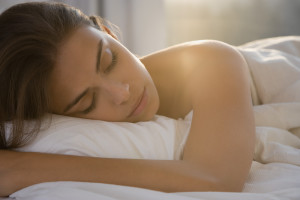10 Ways Sleep Deprivation Affects Your Health
Article posted in: Lifestyle
How much do you love your sleep? For many of us, the answer is apparently not enough. Kids constantly fight it and adults are no better, sacrificing dozing for the sake of work, worry, TV or the internet. We constantly rationalize doing it, too. And that’s a problem, because the consequences of sleep deprivation can be problematic for—if not downright dangerous to—your health. So to make note of May being National Better Sleep Month, we’re giving a shoutout to shuteye by describing 10 ways that sleep deprivation may be affecting your life, perhaps without you even realizing it.
Weight gain Research indicates that sleep deprivation affects your levels of ghrelin and leptin—which, in turn, can increase your appetite. In short: snooze less, eat more, weigh more. Wouldn’t you want to reverse these? If so, get your shuteye!
Diabetes Surprised? Research points to sleep as being a possible factor in developing diabetes, so getting the right amount of sleep could help impact your blood glucose in a good way.
Cognitive function Ever find yourself unable to focus at work after a poor night’s sleep? That’s not a coincidence. A lack of sleep makes it difficult to concentrate, think critically and remember things. So if you want to seem smarter and sharper, go ahead and get more sleep.
Crankiness This may have been the first thing to pop into your head, and for good reason. Our bodies need eight hours of sleep per night and make us pay for it if we don’t get it—and then others pay for it when they have to deal with our mood.
Dozy driving People swear they don’t do it, and yet it keeps happening. According to the National Highway Traffic Safety Administration, more than 100,000 accidents and 1,500 deaths a year are a result of drowsy driving.
Serious sleep disorders Conditions such as narcolepsy and sleep apnea affect more than just sleep; they can also affect your day-to-day living and severely impact your ability to live a normal life; in some cases they can be life-threatening.
Skin There really is such a thing as beauty rest. A recent study conducted by Britain’s The Sleep School and Benson for Beds found that getting only six hours of shuteye per night increased signs of aging in the face (wrinkles, spots, etc.), and that was after only five nights of less sleep!
Libido Sure, being too tired and cranky can contribute to problems in the bedroom. However, WebMD reports that sleep apnea can also affect men’s testosterone levels, so this issue can be physiological as well as physical and emotional.
Depression It’s logical that sleep and depression are intertwined; each can cause the other, after all—is it that you can’t sleep because you’re depressed or depressed because you can’t sleep? Sometimes it can go in the opposite direction: sometimes if you’re depressed, all you want to do is snooze. Plus, as the National Sleep Foundation notes, the worse the severity of sleep deprivation, the more strongly correlated it is with depression.
Heart health Want a healthier heart? Give it adequate rest. The Centers for Disease Control, among others, notes that there may be a correlation between sleep problems and cardiovascular conditions such as hypertension, stroke and hardening of the arteries.






